
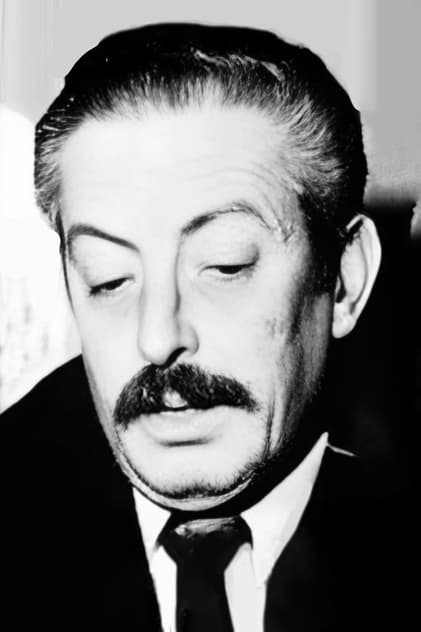
Abdelhalim Rais
Born: January 4, 1924
Died: November 8, 1979
in Alger, Algérie
Died: November 8, 1979
in Alger, Algérie
Abdelhalim Rais (birth name Boualem Raïs) is an Algerian actor and comedian, born January 4, 1924 in the casbah of Algiers and died November 8, 1979.
Boualem Raïs, chose the pseudonym "Abdelhalim" after the name of Abdelhalim Hafid whom he adored so much, grew up alongside the mujahideen and worked as a postman, public writer and was also employed in an electricity and gas company. However, what fascinated him was song, music and comedy. From time to time, he went to the Mahieddine-Bachtarzi rehearsal room (located rue du Lézard in Algiers) where he began to meet and know the artists. At the beginning of his career, when he was only twenty years old, he began writing ditties and participating in theatrical plays. At this time in 1934 he wrote the play "El Yatime" (the orphan) and joined the troupe El Hilal El Djazairi of which he was a founding member.
In 1946, he left for Morocco where he played in two films "Chadad El Adil" alongside Djeloul Bach Djarah and Maarouf with Mohamed Touri. Back in Algiers, he joined the Algerian Radio team and began preparing programs on police theater. In 1947, Mahieddine Bachtarzi, who initiated the Arab theater season at the former Algiers Opera (currently the National Theater), presented the play "Monserrat" with Mustapha Kateb. The latter was presented for the first time to the Algerian public by the MTLD troupe (of which Raïs was a member) in November 1949 and, let us emphasize, in the presence of the French author Emmanuel Roblès. Raïs will subsequently play in the play "Chemchoum El Djazair" by Mohamed Ouadah, "Le Bourgeois Gentilhomme" by Molière... He then writes several plays including "Hya El Hayat" (C'est La Vie) and "Bin Narain" (Entre Deux Feux) at a time when theater had a good relationship with the National Movement. In 1950, the MTLD troupe had participated in several festivals in communist countries (Berlin in 1952, Budapest in 1953, Warsaw 1955...).
In 1953, Raïs wrote, "Sidi El Hadj", "Mourad Wahid" and "Hadi Hya Dounia". In 1954, at the outbreak of the war of national liberation, the FLN ordered the cessation of all artistic and cultural activities. At the beginning of 1956, Raïs was forced to leave for France like many Algerian artists of the time and joined the Algerian theater troupe founded by Mustapha Kateb in 1940. At the end of 1956, the Federation planned to found the FLN artistic troupe and at the beginning of 1957 , Boumendjel contacted Mustapha Kateb to set up this troupe which was formed and gave birth to the epic Nahw Ennour in 1958. At this time, Raïs began to write plays on the Revolution and the Algerian people. The most famous of his plays "Les Enfants de la Casbah" (May 10, 1959), "El Ahidoun", "Dam Elahrare" tour throughout the country. After independence in 1962, Raïs joined Algerian Radio and Television and played in several films such as "The Night Afraid of the Sun" (1965), "Hassan Térro" (1965), "Chronicle of the Ember Years", "Opium and the Stick", "El Moukafeh"...
And while he was in the middle of shooting a film in Bousaâda in 1979, Raïs suffered a cardiac arrest and died on the spot. He is buried in the El Kettar cemetery in Algiers.
Boualem Raïs, chose the pseudonym "Abdelhalim" after the name of Abdelhalim Hafid whom he adored so much, grew up alongside the mujahideen and worked as a postman, public writer and was also employed in an electricity and gas company. However, what fascinated him was song, music and comedy. From time to time, he went to the Mahieddine-Bachtarzi rehearsal room (located rue du Lézard in Algiers) where he began to meet and know the artists. At the beginning of his career, when he was only twenty years old, he began writing ditties and participating in theatrical plays. At this time in 1934 he wrote the play "El Yatime" (the orphan) and joined the troupe El Hilal El Djazairi of which he was a founding member.
In 1946, he left for Morocco where he played in two films "Chadad El Adil" alongside Djeloul Bach Djarah and Maarouf with Mohamed Touri. Back in Algiers, he joined the Algerian Radio team and began preparing programs on police theater. In 1947, Mahieddine Bachtarzi, who initiated the Arab theater season at the former Algiers Opera (currently the National Theater), presented the play "Monserrat" with Mustapha Kateb. The latter was presented for the first time to the Algerian public by the MTLD troupe (of which Raïs was a member) in November 1949 and, let us emphasize, in the presence of the French author Emmanuel Roblès. Raïs will subsequently play in the play "Chemchoum El Djazair" by Mohamed Ouadah, "Le Bourgeois Gentilhomme" by Molière... He then writes several plays including "Hya El Hayat" (C'est La Vie) and "Bin Narain" (Entre Deux Feux) at a time when theater had a good relationship with the National Movement. In 1950, the MTLD troupe had participated in several festivals in communist countries (Berlin in 1952, Budapest in 1953, Warsaw 1955...).
In 1953, Raïs wrote, "Sidi El Hadj", "Mourad Wahid" and "Hadi Hya Dounia". In 1954, at the outbreak of the war of national liberation, the FLN ordered the cessation of all artistic and cultural activities. At the beginning of 1956, Raïs was forced to leave for France like many Algerian artists of the time and joined the Algerian theater troupe founded by Mustapha Kateb in 1940. At the end of 1956, the Federation planned to found the FLN artistic troupe and at the beginning of 1957 , Boumendjel contacted Mustapha Kateb to set up this troupe which was formed and gave birth to the epic Nahw Ennour in 1958. At this time, Raïs began to write plays on the Revolution and the Algerian people. The most famous of his plays "Les Enfants de la Casbah" (May 10, 1959), "El Ahidoun", "Dam Elahrare" tour throughout the country. After independence in 1962, Raïs joined Algerian Radio and Television and played in several films such as "The Night Afraid of the Sun" (1965), "Hassan Térro" (1965), "Chronicle of the Ember Years", "Opium and the Stick", "El Moukafeh"...
And while he was in the middle of shooting a film in Bousaâda in 1979, Raïs suffered a cardiac arrest and died on the spot. He is buried in the El Kettar cemetery in Algiers.
Movies for Abdelhalim Rais...


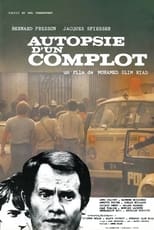

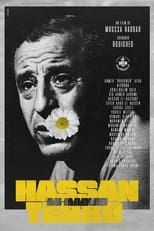

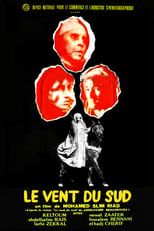
Title: Wind from the South
Released: January 2, 1975
Type: Movie
Néfissa, a student in Algiers, returns to her village in the south in the summer. Her father wants her to marry the mayor but she wants to continue her studies. Confronting her father and the opinion of the villagers who do not understand her, she decides to flee to Algiers. The shepherd Rabah discovering her wounded and lost in the mountains, has her treated by her mother. In contact with Nefissa, Rabat becomes aware of his exploited condition and discovers the possibilities offered to him by the cooperatives of the agrarian revolution. The two young people will go through the decisive stage together which will allow them to escape obscurantism and exploitation. Based on the novel "Le vent du sud" by Abdelhamid Benahouga

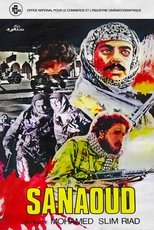

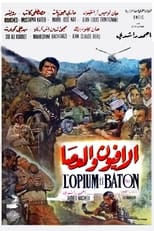
Title: Opium and the Stick
Released: September 14, 1970
Type: Movie
In 1950, in Algeria, in a village in Kabylia, Algerian resistance fighters resisted the French occupation army. Bachir returns to the village to escape the clashes ravaging Algiers. In Thala, he has two brothers, Ali and Belaïd. The first is engaged with the ALN (The National Liberation Army) and fights against the colonizer. His second brother, Belaïd, the eldest, is convinced of a French Algeria. His family torn apart, Bachir decides to join the war and takes sides against the repression of the French army. The French army is trying in vain to turn the population against the insurgents by using disinformation. The more time passes, the more the inhabitants of the village and surrounding areas, oppressed, rally to the cause of the FLN, their houses and their fields will be burned... Adaptation to the cinema of the eponymous novel Opium and the Stick, published in 1965, by Mouloud Mammeri, the film was dubbed into Tamazight (Berber), a first for Algerian cinema.

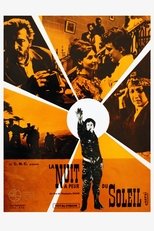
Title: The Night is Afraid of the Sun
Released: January 2, 1965
Type: Movie
Historical film in four scenes which retrace the returns, the progress and the outcome of the war of liberation in Algeria. The first painting, “The land was thirsty” describes aspects of injustice and colonial oppression. The second “The Paths to the Prison” recounts the sufferings of the people engaged in combat. The last two are the stories of two lives.

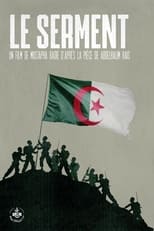
Title: Le Serment
Released: January 1, 1963
Type: Movie
The Oath, a TV film produced by Algerian television in 1963 following the end of the war of independence, tells the story of young Algerians who joined the resistance after the bloody repressions of May 1945 in Constantinois by the French colonial army .
